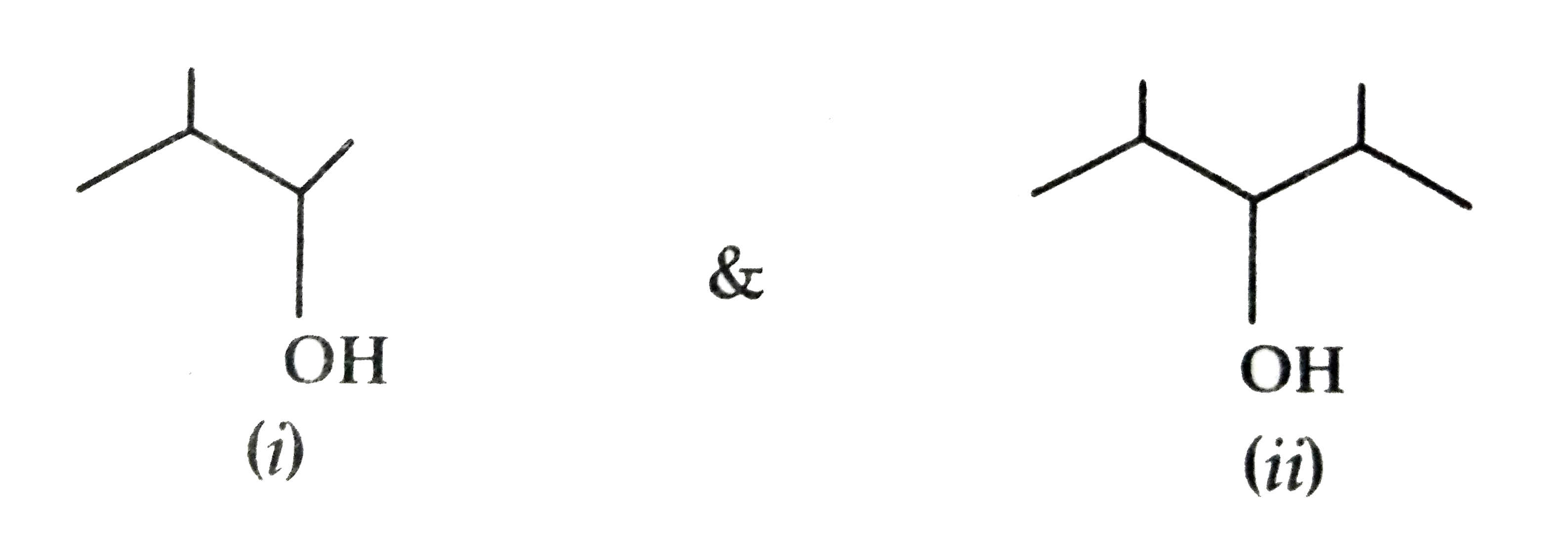Explain the following reactions
(a) Silicon is heated with methyl chloride at high temperature in the presence of copper,
(b) Silicon dioxide is treated with hydrogen fluoride,
(c) CO is heated with ZnO,
(d) Hydrated alumina is treated with aqueous NaOH solution.
When silicon is heated with methyl chloride at high temperature in the presence of copper, a mixture of mono, di- and trimethylchlorosilanes along with a small amount of tetramethylsilane is obtained.
CH3Cl+SiCu powder−−−−−→573KCH3SiCl3+(CH3)2SiCl2+(CH3)3SiCl+(CH3)4Si
Topper's Solved these Questions
- SOME P-BLOCK ELEMENTS BOOK - ICSECHAPTER - SOME P-BLOCK ELEMENTS EXERCISE - ASSERTION-REASON TYPE QUESTIONS
2 Videos
- SOME BASIC CONCEPTS OF CHEMISTRY BOOK - ICSECHAPTER - SOME BASIC CONCEPTS OF CHEMISTRY EXERCISE - NCERT TEXT-BOOK EXERCISES (WITH HINGS AND SOLUTIONS)
36 Videos
- STATES OF MATTER : GASES AND LIQUIDSBOOK - ICSECHAPTER - STATES OF MATTER : GASES AND LIQUIDSEXERCISE - NCERT TEXT-BOOK EXERCISES (With Hints and Solutions)
23 Videos
Similar Questions
Give balanced equations for the following reactions :
(i) Potassium permanganate is heated with concentrated hydrochloric acid.
(ii) Lead sulphide is heated with hydrogen peroxide.
(iii) Ozone is treated with potassium iodide solution.
View SolutionGive balanced equation for the following reactions:
(i) Potassium permanganate is heated with concentrated hydrochloric acid.
(ii) Potassium dichromate is treated with acidified ferrous sulphate solution.
(iii) Hydrogen peroxide is treated with acidified KMnO4 solution.
View SolutionWrite the balanced chemical equations for the following reactions and identify the type of reaction in each case.
(a) Nitrogen gas is treated with hydrogen gas in the presence of a catalyst at 773 K to form ammonia gas.
(b) Sodium hydroxide solution is treated with acetic acid to form sodium acetate and water.
(c) Ethanol is warmed with ethanoic acid to form ethyl acetate in the presence of concentrated H2SO4.
(d) Ethane is burnt in the presence of oxygen to form carbon dioxide, water and releases heat and light.
View SolutionWhat happens when
(a) Borax is heated strongly,
(b) Boric acid is added to water,
(c) Aluminium is treated with dilute NaOH,
(d) BF3 is reacted with ammonia ?
View SolutionWhat happens when : (write only chemical reactions)
(a) Hydrogen Sulphide is treated with Sulphur dioxide.
(b) carbondioxide is passed through a concertrated aqueous solution of sodium chloride saturated with ammonia.
( c) red lead is treated with nitric acid.
(d) dilute nitric acid is slowly reacted with tin.
View SolutionA white crystalline compound (X) swells open heating and gives violet-coloured flame. Its aqueous solution gives the following reactions :
(a) A white precipitate is formed, with BaCl2 in presence of HCl.
(b) When treated with excess of NH4OH, it gives white gelatinous precipitate. the white precipitate dissolves in NaOH and reappears on boiling with concentrated solution of NH4Cl.
( c) It gives yellow precipitate with cobaltinitrite solution. Identify (X) and explain the reaction at steps a,b and c.
View SolutionWrite the balanced chemical equations for the following :
(a) Pb3O4 is treated with nitric acid.
(b) Zinc oxide is treated with excess of sodium hydroxide solution.
(c) Dilute nitric acid is slowly reacted with metallic tin.
(d) Gold is dissolved in aqua regia.
(e) Iron reacts with cold dilute nitric acid.
(f) Sodium thiosulphate is added slowly to silver nitrate.
(g) Heating of ZnCI2.2H2O.
View SolutionWhat happens when ?
(a)Copper sulphate is treated with excess of NH4OH
(b)Bismuth chloride is treated with sodium stannite solution in presence of NaOH.
( c)Stannous chloride is treated with mercuric chloride.
View SolutionWrite balanced chemical equations for the following reactions with acidified potassiumpermanganate solution.
(A) Oxalic acid is treated with acidified potassium permanganate solution.
(B) Benzoic acid is treated with a mixture of concentrated nitric acid and concentrated sulphuric acid.
(C) Methyl magnesium iodide is treated with carbon dioxide and the product is hydrolysed in acidic medium.
View Solution(a) Identify the chiral molecule in the following pair :

(b) Write the structure of the product when chlorobenzene is treated with methyl chloride in the presence of sodium metal and dry ether .
(c) Write the structure of the alkene formed by dehydrohalogenation of 1-bromo-1-methylcyclohexane with alcoholic KOH.
View Solution
